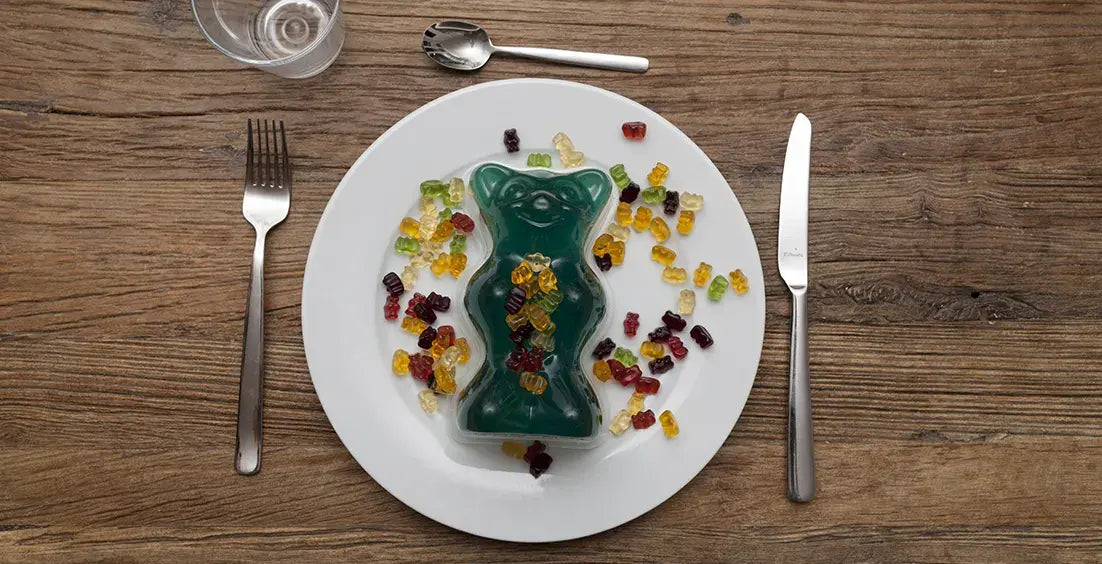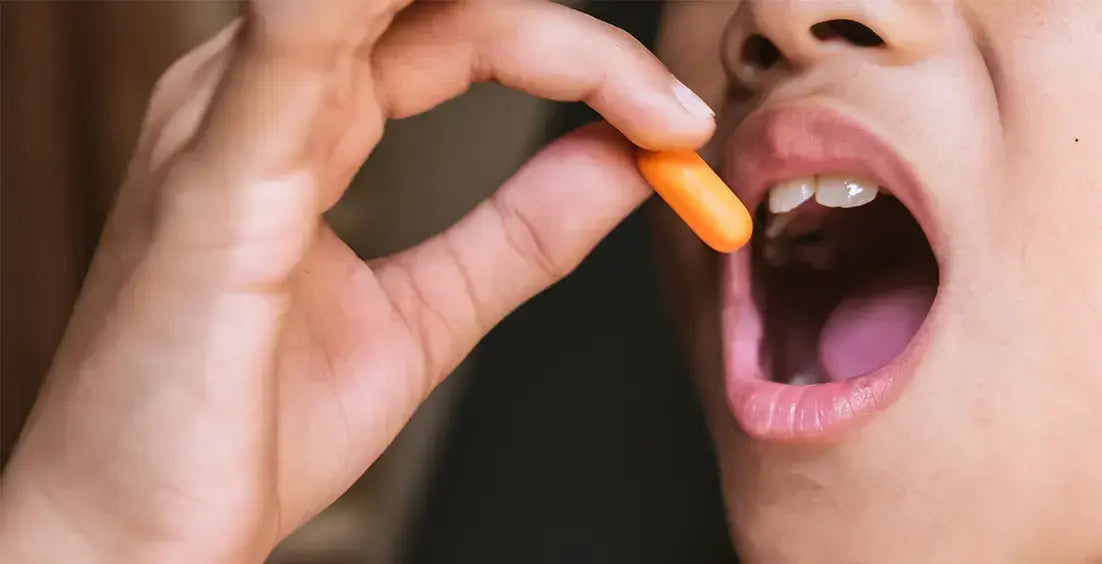

Do Multivitamins Expire? When to Replace Your Multivitamin
Vitamin supplements lose potency over time due to various factors. Learn about expiration dates, why they expire, and whether it's safe to take expired vitamins.

Table of contents
- Introduction
- Understanding Expiration Dates
- How Long Do Vitamins Last?
- Factors Affecting
- Vitamin's shelf life
- Signs of Multivitamins
- Vitamins Lose Potency the Fastest?
- Is It Safe to Take Expired Vitamins?
- Risks of Expired Vitamins
- Proper Storage Techniques
- When to Discard?
- Tips for Maximizing Shelf Life
- Conclusion
- FAQs
Introduction
Hey there! Anyone can relate to the experience when you just opened the medicine or kitchen cabinet and found multivitamins that had expired a long time ago. However, do those tiny pills and capsules really spoil? Or can we just pop ‘em like nothing is wrong?
Multivitamins are essential and very useful in ensuring that everything in the human body is in order. Of course, it is evident that most of these micronutrients help to enhance the body's immunity, and some help in strengthening bones. Nonetheless, people have the challenge of visualizing multivitamin products to expire when they are already past their shelf dates.
After all, they’re not like food items that can spoil or grow mold, are they? Well, the truth is that multivitamins are not shielded from the reality that they do have a shelf life and, therefore, it is crucial to know when and how they are likely to lose their efficacy.
Understanding Expiration Dates
According to the FDA, Drug expiration dates indicate the period during which the product remains stable, retaining its strength, quality, and purity when stored according to its labeled conditions.
Since we are beginning this discussion, let us dispel one myth first. That scribble on multivitamins containers is not really an expiration date – at least not in the truest sense of the word. In most cases, they are what is referred to as ‘‘best before’’ dates. This data shows that within this timeline, the manufacturer can assure the consumer of the product’s maximum efficacy and quality.
But here's the kicker: It is also important to note that vitamins do not become ineffective at the end of that best-by date. Their degradation is not sudden, but a process that is affected by several factors inevitable in day-to-day life like exposure to moisture, heat and light. Therefore, even though the listed date is useful as a reference point, it is not a strict deadline.
However, what has to be noted is that the dates mentioned on the bottles of vitamins are not random numbers entered there. They are fixed by manufacturers in accordance with vigorous experimentation and analysis done to decide the stability of the product.
How Long Do Vitamins Last?
When it comes to multivitamins, shelf life can be surprisingly variable. Unlike prescription medications, the FDA doesn’t mandate expiration dates for dietary supplements. Instead, you’ll often see a “best by” or “use by” date voluntarily listed by manufacturers on the packaging.
On average, most vitamins—especially those in tablet form—are formulated to maintain potency for about 2 years from the manufacturing date. However, this isn’t a hard-and-fast rule. The actual longevity depends on both the specific type of vitamin and how you store it.
Factors Affecting Multivitamins Stability
There are several factors that affect the multivitamin's stability as it ages. Okay, these are a few things we have to stay clear of;
- Moisture: This nearly invisible enemy can seriously damage multivitamins. Even moderate water exposure speeds up nutrient breakdown. That’s why desiccant packs are included—to keep moisture levels low.
- Heat: High temperatures threaten vitamin health. Leaving bottles in sunlight, hot rooms, or cars can speed up chemical changes that break down nutrients.
- Light Exposure: Like milk, vitamins shouldn’t face direct sunlight. Prolonged light causes oxidation and nutrient loss.
- Air Exposure: Oxygen is vital for us, but not for vitamins. Once opened, exposure to air can cause oxidation and degrade sensitive nutrients.
Vitamin's shelf life depends on their forms
All right, now we know what factors can reduce the sustainability of vitamins. But have you considered that even the form of the multivitamins affects its shelf-life? Let's break it down:
Tablets/CapsulesThe simple and well-known approach of using pills usually has a comparatively long shelf life due to the protection of substances from the environment and humidity and light influences. Other conditions of storage will ensure that these will remain stable for 2-5 yrs beyond that best-by date.
LiquidsMultivitamins-drops as well as liquid supplements pose a slightly more complex problem. They are more prone to chemical and microbial action because of the liquid medium that surrounds them. Most can remain steady in the labeled date for a period of 1-2 years provided they are well stored.
PowdersThese are concentrated nutrient blends of powdered formulations that stand to last for a maximum of six months to a year after the container has been opened. This reduces the volume of powder mass that can be protected from air and moisture and hence speeds up deterioration.
GummiesGummy vitamins are a popular choice due to their taste and convenience. However, do gummy vitamins work as effectively as traditional tablets? While they may be easier to swallow, their shorter shelf life can be a drawback. Consume them within 6 months to one year for optimal results.
Signs of Multivitamins Degradation
However, even if you ensure that you check the best-before date on those multivitamin supplements, some signs can alert you that they have gone bad. Here's what to look out for:
Physical Changes
One of the first signs vitamins have gone bad is a change in appearance. Faded colors, unusual smells, or a rough, powdery surface mean the nutrients are degrading. If your vitamins look dull or off, it’s time to discard them.
Potency Reduction
Expired vitamins may lose their effectiveness, even if that’s not always visible. If you notice reduced results despite adjusting your dosage, degradation could be the cause. Since not all potency loss is obvious, it’s safer to replace expired supplements to avoid health risks.
Which Vitamins Lose Potency the Fastest?
Not all vitamins are created equal when it comes to shelf life. Some are more likely to lose their strength sooner than others. Water-soluble vitamins—like vitamin C and the B vitamins, especially thiamine (vitamin B1)—are among the first to degrade.
Vitamin K is also known for breaking down relatively quickly. So, if your multivitamin contains these nutrients, it's a good idea to pay extra attention to expiration dates and storage conditions to help preserve their potency for as long as possible.
Is It Safe to Take Expired Vitamins?
Wondering if taking expired vitamins is risky or just a harmless mistake? Here’s the good news: most expired vitamins are safe. Research, including studies from the African health sciences, shows that many supplements remain safe long after their expiration date. Serious toxicity is extremely rare.
That said, trust your senses. If your vitamins look moldy, feel damp, or smell odd, toss them—no benefit is worth the risk. Supplements that change in appearance or odor are best avoided.
While expired vitamins are usually harmless, don’t take chances with anything that seems off. And when in doubt, it’s always a good idea to replace your bottle with a fresh one.
According to Dr. Andrew Youssouf, MD, while vitamins may still be safe for consumption after expiration, their effectiveness is greatly decreased. To get the most out of your vitamins, it's recommended to use them before their expiration date.
Risks of Taking Expired Vitamins
Well, there is actually a proverb that goes like that “if it ain’t broke, don’t fix it. ” As far as the ingestion of walked-out vitamins is concerned, this line of thinking can be quite dangerous. While consuming an old multivitamin or two isn't likely to cause serious harm, there are some risks to be aware of:
Potential Loss of Potency
This refers to our previous point where we have shared the idea that, with time, multivitamins products may lose their efficiency since their active components decompose. Thus, if you ingest a food supplement that has already expired, it may not be as nutritionally potent as you desired.
Contamination Concerns
Seasoning, improper storage or maternal clients’ handling of multivitamins products exposes them to environmental factors such as air, moisture, bacteria or mold. Intake of such foods might result in food-borne diseases or any other illnesses as may be determined by the human body.
Potential Side Effects
It has been suggested that the process of degradation could even change the chemical properties of the nutrients and therefore harm the patient by causing additional side effects or interacting with the medications being taken.
While that old bottle of vitamin C from ten years ago might not harm you, it’s unlikely to do much good either. Supplements lose their effectiveness over time, so it’s always best to use ones that are as fresh as possible.
Sure, it might seem tempting to save a few dollars by using what you already have, but when it comes to your health, it’s worth investing in supplements that actually work. After all, your well-being is priceless!
Learn more with this in-depth video explanation by Alaska Prepper:

Proper Storage Techniques
Okay, so now we know that vitamins are not something that is going to last forever and it actually can spoil. But, how can we optimally store them so that their nutrients stay fresh for as long a time as possible?
Cool, Dry, and Dark
These are the three phrases that any multivitamin user should remember. Store your supplements in a cool dark area where humidity has limited access to it or areas such as the bathroom or kitchen. Light also has an effect on them, as it causes accelerated deterioration; so make sure they are stored in a place away from direct light.
Airtight Containers
Those nutrient-packed capsules plus powders will similarly last much longer if they are stored in air-tight containers or bottles with tight lids. This cuts contact with air and in the process eliminates oxidation.
Refrigeration
For some supplements such as probiotics or fatty fish oils then perhaps the refrigerator is the best place for supplement storage. One needs to read the label or better still speak to a pharmacist because the different products may need varying amounts of refrigeration.
ALSO READ - Do Vitamins Break a Fast
When to Discard Expired Vitamins?
One day, even the grandest of the multivitamins will fall. So, when is it acceptable to toss supplements that have gone out of date?
Dispose of expired vitamins safely. Don’t flush them down the toilet or sink, as this can harm the environment. Instead, follow local waste management guidelines for safe disposal.
General GuidelinesMost of the multivitamin shelf life experts agree with the idea that vitamins that have crossed the two-year shelf life, especially those with best-before or use-by dates, should be discarded. This is particularly important for a multi vitamin with iron, as the potency of iron can decrease over time, potentially affecting its effectiveness.
ExceptionsThere are some exceptions to the general rule. For instance, vitamin C can remain effective even up to four years past its label date. However, vitamins with oil bases or probiotics spoil faster and should be replaced more frequently.
Tips for Maximizing Multivitamins Shelf Life
We've discussed expiration dates and changes after vitamins expire. But what if you could learn some concepts to extend shelf life from the start? Here are a few pro tips:
- FIFO Approach: Always follow “first in, first out.” Use older bottles before opening new ones to avoid wasting supplements that may lose their effectiveness over time.
- Buy Smaller Quantities: Large supplement tubs may seem like a good deal, but if you can’t finish them before they expire, they’re not worth the cost. Stick with smaller bottles that match your typical usage period.
- Check Dates Before Purchasing: Don’t just grab any bottle from the shelf. Take a moment to check the expiration or best-by date and pick the one with the longest shelf life.
- Rotate Stock: If you have a supplement stash at home, make sure older bottles are up front so you use them first. Keep vitamins in a cool, dry place away from sunlight and moisture to prevent early degradation.
By being mindful of how you store and use your multivitamins, you can keep them effective longer—and save money by reducing waste. A little attention goes a long way toward keeping your multivitamin supplements fresh and your health routine on track.
ALSO READ - Are Multivitamins Good for You
Conclusion
Vitamins also undergo some form of deterioration, meaning that they have a shelf life which depends on the effects of heat, moisture, light and several other factors. After expiring they may become ineffective or in some cases, pose health risks to those using them.
However, what this means is that you do not have to discard all your vitamins the day after the best-by date has been indicated on the container. Indeed, practically all supplements can be stored in a cool, dry, airtight environment and so, they are safe to take for several years beyond that date. But it is best to confer with your doctor or a pharmacist before consuming them.
In conclusion, the consumption of expired vitamins is not a good practice because one cannot be sure of their effectiveness and or side effects. At the same time, observing the expiration dates and applying the above key principles in the management of their storage can be effective enough.
Why compromise your health with second-rate nutrients that are nowhere near the best? Your well-being deserves nothing but the highest quality. As we noted, these supplements have expiry dates. Do yourself a favor and try to use your stock before it expires. Your body will benefit more from fresh, potent vitamins than from old, stored ones.
FAQs
Our Top Picks
About WOWMD Staff
The WOWMD Staff category features a diverse team of writers, each bringing specialized knowledge in areas such as nutrition, fitness, wellness, and more. Articles in this category benefit from insights provided by multiple experts. All content is peer-reviewed and regularly updated to ensure compliance with our editorial standards.
Popular Stories
- Top Hair Loss Causes & Proven Natural Treatments
- Top Natural Remedies for Inflammation & Chronic Pain Relief
- Signs and Symptoms of High Testosterone: Causes and Solutions
- Best Resveratrol Supplements: Top Picks For Healthy Aging
- Magnesium Glycinate for Sleep: Why This Form Helps You Relax Naturally
- Top Apple Cider Vinegar Gummies for Weight Loss in 2025
References
- Expiration Dates - Questions and Answers https://www.fda.gov/drugs/pharmaceutical-quality-resources/expiration-dates-questions-and-answers
- Main factors affecting vitamins' stability https://www.researchgate.net/figure/Main-factors-affecting-vitamins-stability-6_fig2_341603104
- Vitamin stability https://www.asi.k-state.edu/extension/swine/swinenutritionguide/general_nutrition_principles/vitaminstability.html
- Degradation of vitamins https://www.sciencedirect.com/science/article/abs/pii/B9780128173800000087
- Storing your medicines https://medlineplus.gov/ency/patientinstructions/000534.htm
Evidence Based Research
This WOWMD content has been reviewed, as well as checked for facts, so as to guarantee the best possible accuracy.
We follow a strict editorial policy, especially related to the sources we use. Our articles are resourced from reputable online pages, with research drawn from academic institutions and peer-reviewed studies. You can click on the numbers in the parentheses (1, 2, etc.) and check out those references.
The feedback form on this page can be used to report content that is not accurate, up-to-date or questionable in any manner.
We do NOT intend for the information presented through our articles to replace the medical relationship with a qualified physician, nor does it represent specialized advice.


 Alpha Man Power Pack
Alpha Man Power Pack All-Day Fat Burn Trio
All-Day Fat Burn Trio Better Immunity Bundle
Better Immunity Bundle  Calm & Sleep Duo
Calm & Sleep Duo Cognitive Health & Vision Combo
Cognitive Health & Vision Combo Complete Weight Loss Bundle
Complete Weight Loss Bundle Core Vitality Trio
Core Vitality Trio Energy Booster Combo
Energy Booster Combo Focus Fuel Trio
Focus Fuel Trio Glow & Balance Duo
Glow & Balance Duo Health Balance Trio
Health Balance Trio Heart Care Bundle
Heart Care Bundle Joint Health Support Combo
Joint Health Support Combo Men's Immunity & Prostate Health Bundle
Men's Immunity & Prostate Health Bundle Metabolism Boost Duo
Metabolism Boost Duo Natural Skin Care Bundle
Natural Skin Care Bundle Peak Performance Trio
Peak Performance Trio Relax & Recharge Duo
Relax & Recharge Duo Skin Detoxification Bundle
Skin Detoxification Bundle Smart Energy Trio
Smart Energy Trio Stress + Energy + Wellness Combo
Stress + Energy + Wellness Combo  Total Burn Ignite Trio
Total Burn Ignite Trio Total Harmony Pack
Total Harmony Pack Vitality Power Duo
Vitality Power Duo Workout Supplements Combo
Workout Supplements Combo



































